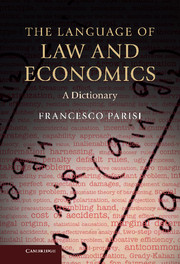R
Published online by Cambridge University Press: 04 August 2017
Summary
Race over the top: see race to the top versus race to the bottom.
Race to the top versus race to the bottom: states share borders with each other, and they often compete to encourage businesses to reside within their borders. States compete for businesses and residents by offering bundles of services and regulations (e.g., Delaware is frequently viewed as a state that uses business-friendly regulation to encourage companies to incorporate within its borders). This form of jurisdictional and regulatory competition is often metaphorically described as leading to a race to the top or a race to the bottom. The conventional theory postulates that the regulatory competition between states will lead to a race to the top (Tiebout, 1956). The alternative view expresses concern that jurisdictional competition can actually create a race to the bottom because of jurisdictional externalities (Parisi, Schulz, and Klick, 2006; Yablon, 2007). The law and economics literature has attempted to identify the conditions under which jurisdictional and regulatory competition is likely to lead to “top” or “bottom” outcomes, but the theoretical literature still lacks a general criterion for distinguishing between these two hypotheses. An interesting possibility emerges in the case of self-regulation, in which firms and organizations subject themselves to self-selected standards (e.g., environmental quality ratings, voluntary compliance audits, work safety certifications) to signal information to customers and business partners. Here a possibility arises that competition and signaling externalities may lead to a race over the top, in which firms may voluntarily adhere to inefficiently strict standards in order to send a stronger signal to customers and business partners. See also Tiebout competition and regulatory competition.
- Type
- Chapter
- Information
- The Language of Law and EconomicsA Dictionary, pp. 244 - 263Publisher: Cambridge University PressPrint publication year: 2013



